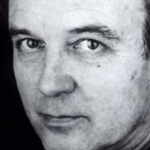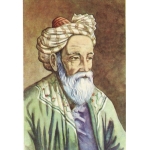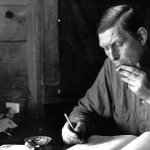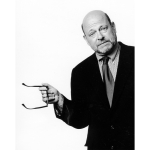Goethe in Weimar sleeps, and Greece,
Long since, saw Byron's struggle cease.
But one such death remain'd to come;
The last poetic voice is dumb—
We stand to-day by Wordsworth's tomb.
When Byron's eyes were shut in death,
We bow'd our head and held our breath.
He taught us little; but our soul
Had felt him like the thunder's roll.
With shivering heart the strife we saw
Of passion with eternal law;
And yet with reverential awe
We watch'd the fount of fiery life
Which served for that Titanic strife.
When Goethe's death was told, we said:
Sunk, then, is Europe's sagest head.
Physician of the iron age,
Goethe has done his pilgrimage.
He took the suffering human race,
He read each wound, each weakness clear;
And struck his finger on the place,
And said: Thou ailest here, and here!
He look'd on Europe's dying hour
His eye plunged down the weltering strife,
The turmoil of expiring life—
He said: The end is everywhere,
Art still has truth, take refuge there!
And he was happy, if to know
Causes of things, and far below
His feet to see the lurid flow
Of terror, and insane distress,
And Wordsworth!—Ah, pale ghosts, rejoice!
For never has such soothing voice
Been to your shadowy world convey'd,
Since erst, at morn, some wandering shade
Heard the clear song of Orpheus come
Through Hades, and the mournful gloom.
Wordsworth has gone from us—and ye,
Ah, may ye feel his voice as we!
He too upon a wintry clime
Had fallen—on this iron time
Of doubts, disputes, distractions, fears.
He found us when the age had bound
Our souls in its benumbing round;
He spoke, and loosed our heart in tears.
He laid us as we lay at birth
On the cool flowery lap of earth,
Smiles broke from us and we had ease;
The hills were round us, and the breeze
Went o'er the sun-lit fields again;
Our youth return'd; for there was shed
On spirits that had long been dead,
Spirits dried up and closely furl'd,
The freshness of the early world.
Ah! since dark days still bring to light
Man's prudence and man's fiery might,
Time may restore us in his course
Goethe's sage mind and Byron's force;
But where will Europe's latter hour
Again find Wordsworth's healing power?
Others will teach us how to dare,
And against fear our breast to steel;
Others will strengthen us to bear—
But who, ah! who, will make us feel?
The cloud of mortal destiny,
Others will front it fearlessly—
But who, like him, will put it by?
Keep fresh the grass upon his grave,
O Rotha, with thy living wave!
Sing him thy best! for few or none
Hears thy voice right, now he is gone.



















Comment form: